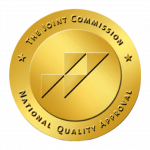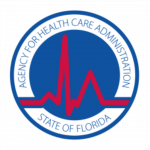Medication-Assisted Treatment (MAT) is a form of treatment for drug addiction that uses medication to help people recover from withdrawal symptoms and urges. MAT is a way to help people abusing opioids and other substances, and some types of MAT can also be used in combination with psychosocial interventions.
MAT is a form of therapy that combines behavioral therapy with medications to help people stop abusing drugs or alcohol. Some of the substances that MAT helps treat include:
- Opioids
- Alcohol
- Benzodiazepines
- Methamphetamine
- Nicotine

There are several different types of Medication-Assisted Treatment (MAT) for drug addiction
- The first type of MAT is the use of medications to help people recover from withdrawal symptoms. Withdrawal occurs as a result of sudden cessation of the use of drugs.
- The second type is the replacement or substitution of an addictive drug with another substance. For example, methadone for heroin or buprenorphine for either heroin or other opioids. The use of these medication-assisted treatments helps people reduce or abstain from their substance abuse.
- The third type of MAT combines medication with psychosocial intervention, such as cognitive-behavioral therapy (CBT). Medication-Assisted pharmacological interventions include naltrexone and acamprosate. The use of medications to help people reduce their substance abuse and prevent relapse.
These are all forms of medication-assisted treatment for drug addiction and there is more than one way to treat this disease.
Medication-Assisted Treatments Methadone, Naltrexone, Buprenorphine
Three FDA approved drugs used for the treatment of opioid dependence include:
- Methadone: a medication-assisted treatment used for opioid addiction that blocks the effects of the substance and relieves withdrawal symptoms. Methadone as a MAT decreases the euphoric effects of opioids. It may also decrease the craving for opioids and increase their time in the body without leading to withdrawal symptoms or relapse. This gives patients an opportunity to move towards abstinence without having to experience the opioid withdrawal symptoms or risk relapse to illicit use.
- Naltrexone: helps reduce cravings and block the effects of opioids and alcohol. It is not a cure for addiction, but it can help people manage their addiction. Naltrexone blocks the effects of opioids by binding to opioid receptors in the brain, thus, preventing the activation of these receptors. It does not produce any kind of euphoria or high, which means that it cannot be abused. Naltrexone is also an FDA-approved medication for treating alcohol dependence.
- Buprenorphine: Buprenorphine can be used to help people stop using opioids. It is a partial agonist meaning it works similarly to opioids but has a ceiling effect. It binds to the opioid receptors in the brain and reduces cravings for opioids by blocking them from binding. Some people find medication-assisted treatment helpful for stopping their use of opioids because it decreases withdrawal symptoms and cravings.

When deciding which type of medication-assisted treatment is best for a patient, it’s important to consider the following factors
Choosing the right type of treatment for drug addiction is one of the most important decisions a person with an addiction can make. There are many different types of treatment available, and it is important to know what each type offers so that you can make an informed decision.
Additionally, a patient’s motivation to change their substance abuse must be considered when deciding upon what type of medication-assisted treatment is appropriate for them. The patient’s current life situation, including any history of trauma and how addiction may have impacted their ability to cope. The presence of co-occurring psychological disorders or mental health disorders if present.
What are the potential side effects of MAT?
Side effects of MAT are not as serious as compared with the side effects of the substances that are being abused. The side effects of medication-assisted treatments are monitored by physician-overseen treatment and drug rehab programs.
Withdrawal symptoms include nausea, vomiting, muscle aches, and anxiety. Additionally, side effects of MAT can include weight gain and sleepiness or drowsiness.
Which one is the right type of Medication-Assisted Treatment to get you on the road to recovery?
To conclude, there are many forms of medication-assisted treatment for drug addiction. The best one for you will depend on your specific addiction and needs.
Are you ready to seek help through Medication-Assisted Treatment?
If you are ready to accept that you need help and take the first steps towards recovery, contact the Harm Reduction Center. Our team of experienced professionals understands that beginning the recovery process is challenging and difficult. Our private healthcare facility offers all of the resources you need to start you on your way to freedom. Don’t wait until it is too late, contact us today.
HARC Harm Reduction Center is a private healthcare facility that provides highly individualized service to our clients, offering Integrated Medication-Assisted Treatment and all outpatient levels of care. Our goal as a provider is to empower and support each client’s recovery. We don’t stop once they finish treatment, we support each and every client with aftercare programs and support groups throughout the rest of their journey of life. We recognize recovery looks different for everyone and we will stand by you as you or your loved one walks this journey. It is our philosophy that separates us from many other programs.
Recovery is different for everyone. Our belief and experience have shown us that cultivating recovery requires exposure to many different paths. We will empower you to choose a path for yourself and, with collaboration from loved ones and our treatment team, support that choice. If you are ready to make the first step towards drug addiction recovery, contact us today!














